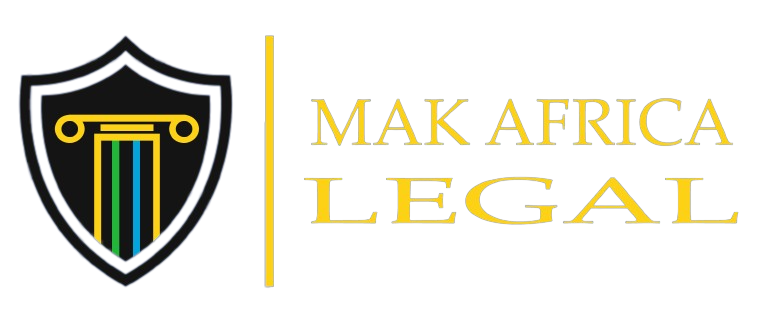
- Introduction: A Major Legal Shift in Foreign Participation
- 1. What Is GN No. 487A of 2025?
- 2. Prohibited Business Activities for Non-Citizens (Full List)
- 3. Who Is Affected?
- 4. What If You Already Have a Valid License?
- 5. Strategic Legal Alternatives & Mitigation Routes
- 6. Why This Matters Beyond Compliance
- Conclusion: Legal Clarity Is Now a Strategic Necessity
Introduction: A Major Legal Shift in Foreign Participation
On 28th July 2025, the Government of Tanzania introduced a landmark regulation through Government Notice No. 487A, officially titled The Business Licensing (Prohibition of Business Activities for Non-Citizens) Order, 2025. This legal directive directly restricts certain types of business activities from being conducted by non-citizens — including individuals and foreign-owned enterprises.
If you’re a foreign investor, diaspora entrepreneur, international business consultant, or multinational company eyeing Tanzania, this new regulation is a must-read.
At Mak Africa Legal, we break down what this order means, how it affects investment plans, and how you can legally navigate around these restrictions while remaining compliant.
1. What Is GN No. 487A of 2025?
Under the authority of the Business Licensing Act (Cap. 101) and Section 14A(2), the Tanzanian government has issued an official order to prohibit non-citizens from engaging in 15 specific business activities. The order applies to both new and renewal license applications.
Effective Date: Immediately upon publication – 28th July 2025
Definition of “Non-Citizen”: As defined under the Tanzania Citizenship Act (Cap. 357)
Penalties:
- Minimum fine of TZS 10 million or 6 months imprisonment, plus visa/residence permit revocation for non-citizens.
- For Tanzanians aiding non-citizens: fine of TZS 5 million or up to 3 months imprisonment.

2. Prohibited Business Activities for Non-Citizens (Full List)
The following sectors are now legally restricted only for Tanzanian citizens:
Business Activity
- Wholesale & retail trade (excluding supermarkets & specialized product outlets)
- Mobile money transfers
- Mobile phone & electronics repair
- Salon businesses (unless inside hotels/tourism settings)
- Cleaning services (home, office, environment)
- Small-scale mining
- Domestic postal & parcel delivery
- Tour guiding
- Establishing or operating TV/radio stations
- Operating museums or curio shops
- Brokerage or real estate agency
- Clearing & forwarding services
- On-farm crop buying
- Gambling machines outside casinos
- Operating micro & small industries

3. Who Is Affected?
This order targets a broad range of actors, including:
- Foreign individual investors (non-citizens)
- Foreign-owned startups and SMEs
- Diaspora Tanzanians without official citizenship
- Multinational companies entering low-capital sectors
- Foreign tour operators or digital-based traders offering mobile or clearing services
If your business, license, or investment falls within the list above, you will be either barred from licensing or unable to renew it upon expiry.
4. What If You Already Have a Valid License?
There is a transition clause:
If a non-citizen already holds a valid license for a prohibited activity, they may continue operations until that license expires. No renewals will be allowed thereafter.
This is a limited-time window. During this phase, legal restructuring, diversification, or business transformation should be explored immediately.
5. Strategic Legal Alternatives & Mitigation Routes
At Mak Africa Legal, we work with affected foreign investors to help them explore alternative legal strategies, including:
A. Business Model Diversification
Shifting focus from prohibited sectors to allowed or high-growth ones such as:
- Technology & software services
- Green energy
- Agribusiness processing
- Infrastructure or logistics support
- Export-focused manufacturing
B. Joint Ventures with Local Majority Ownership
Structuring compliant JV models where Tanzanian citizens hold the controlling stake, and non-citizens operate as technical or capital partners — with full contractual protection.
C. Transitioning into Tourism-Linked Operations
For salon, museum, or curio shop operators — if your business can pivot to serve the tourism market within designated hotel or tourist zones, it may be exempt.
D. Licensing & Regulatory Advisory
We help you:
- Understand eligibility under Investment Centre (TIC) benefits
- Register under permitted industrial or export-driven categories
- Apply for licenses in sectors open to foreign investment

6. Why This Matters Beyond Compliance
Failure to act now could result in:
- Fines, arrests, or legal proceedings
- Termination of residence permits and visas
- Forced business closures and reputational damage
- Potential blacklist from future investment participation
On the other hand, compliance + strategic pivoting = preserved capital, protected goodwill, and continued growth.
Conclusion: Legal Clarity Is Now a Strategic Necessity
This 2025 directive signals a renewed push for economic localization and empowerment of Tanzanian citizens. But it also places a legal burden on international stakeholders to act intelligently, swiftly, and lawfully.
At Mak Africa Legal, we are fully prepared to support you through:
- Risk reviews
- License audits
- JV structuring
- Business pivoting
- Immigration and compliance protections
Request a Strategic Business Licensing Consultation
We’ll help you evaluate your current legal exposure and recommend a compliant, growth-aligned solution.
📧 Email: info@makafrica.com
📞 WhatsApp/Call: +255 746 954 394
🌐 Website: www.makafrica.com
